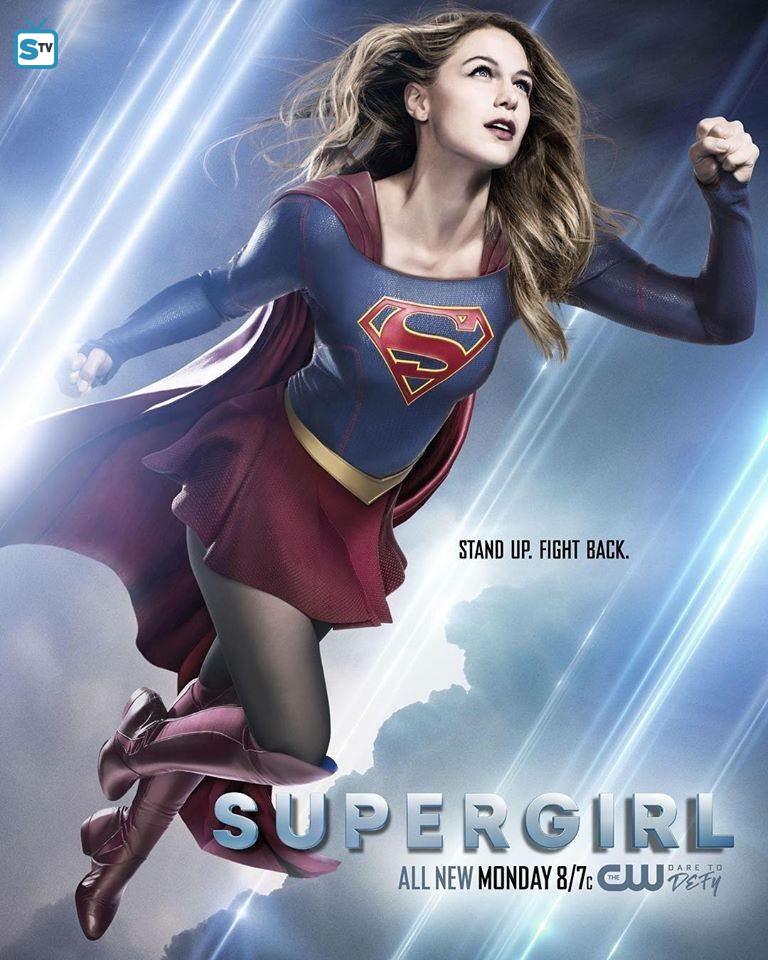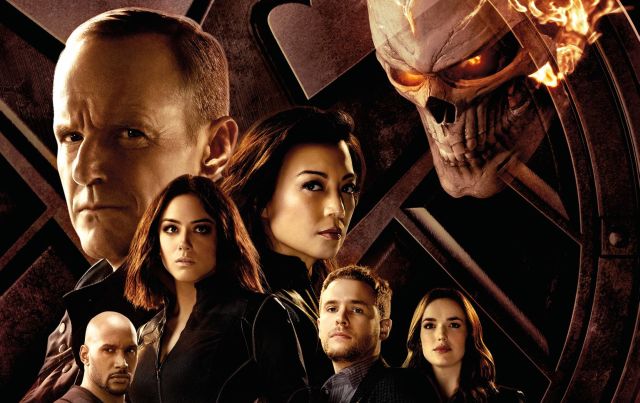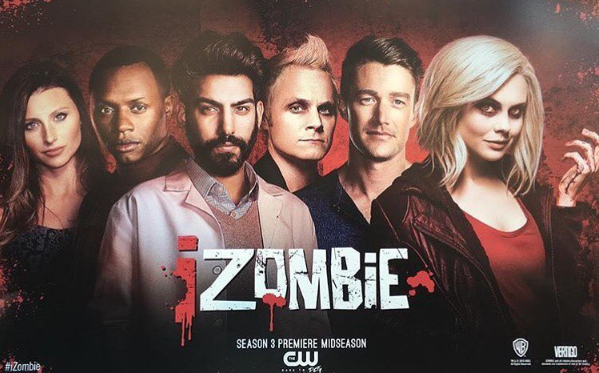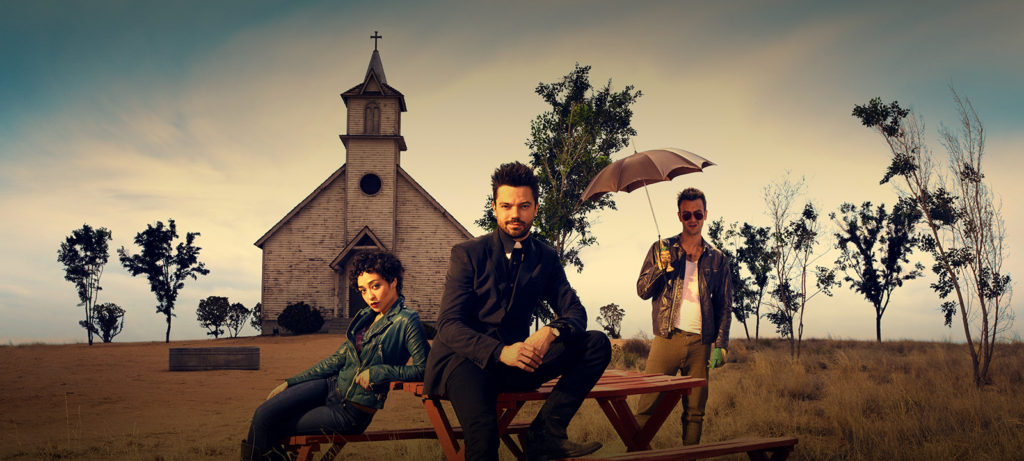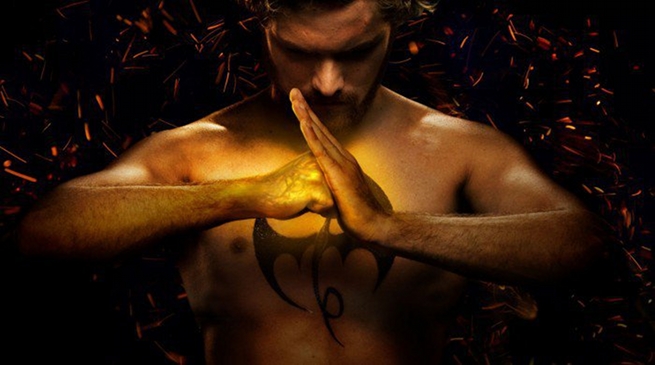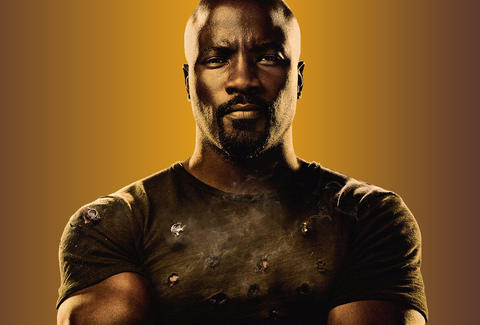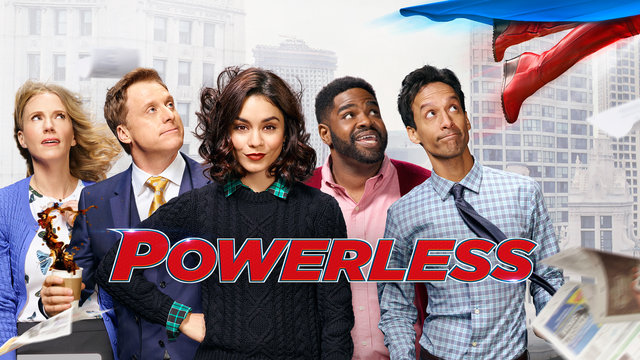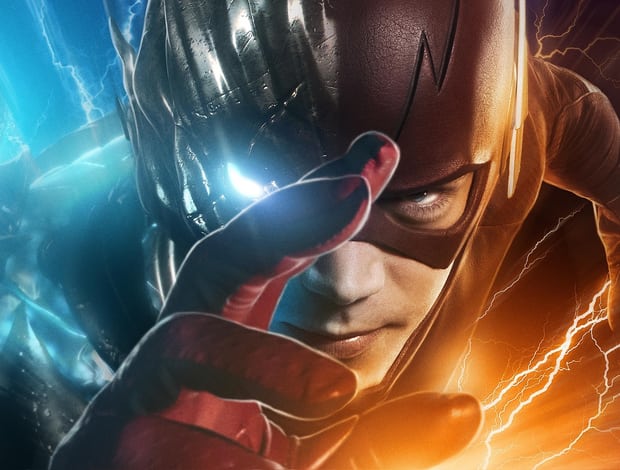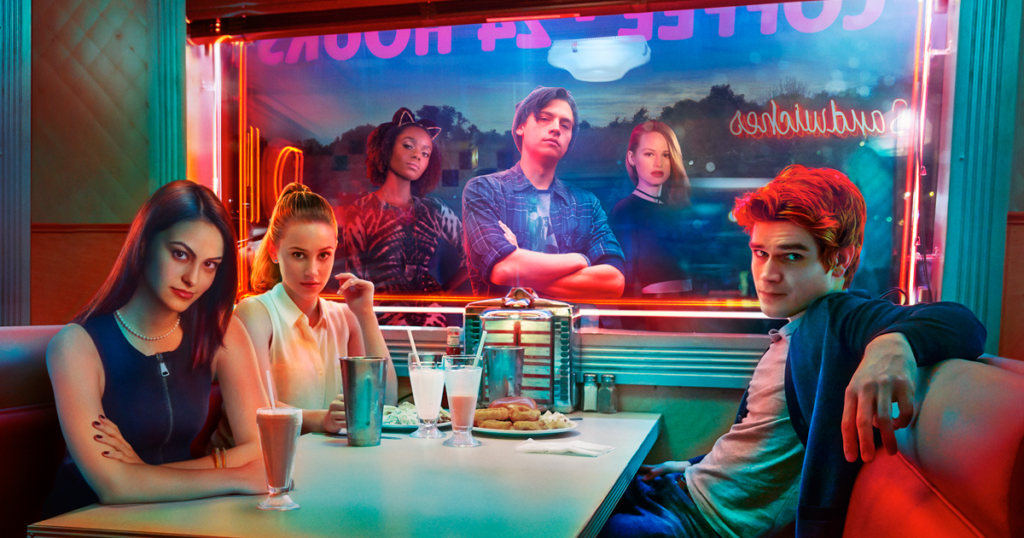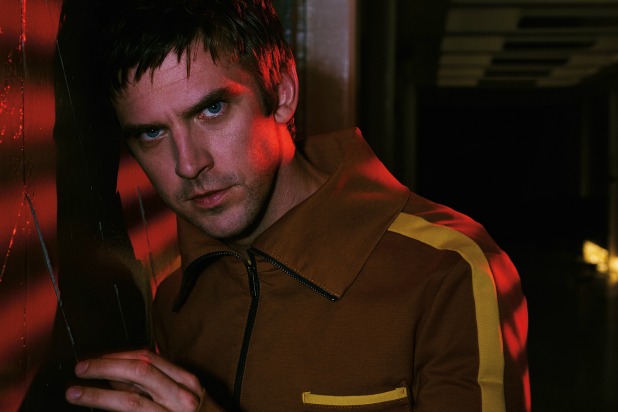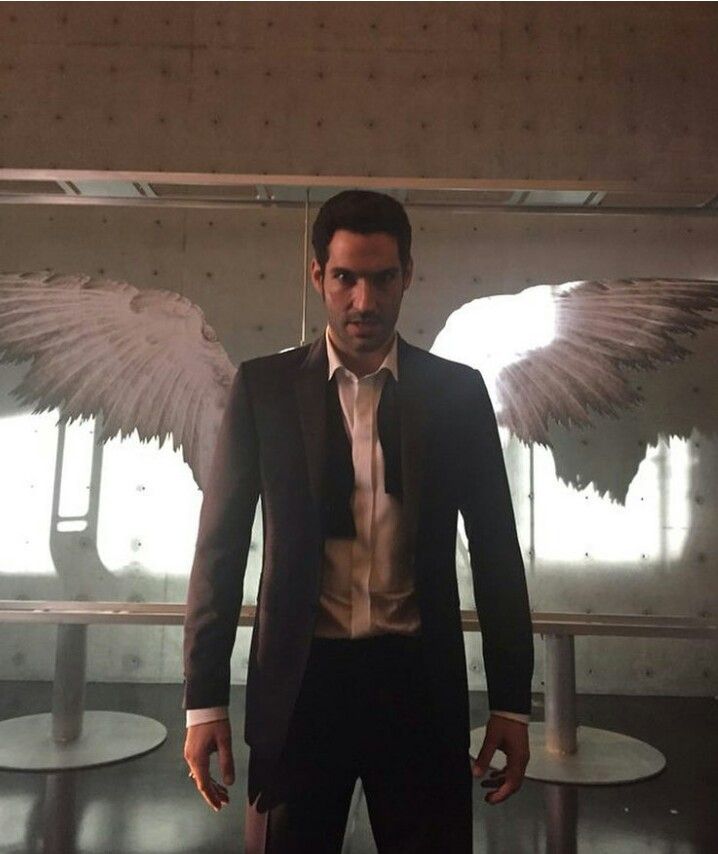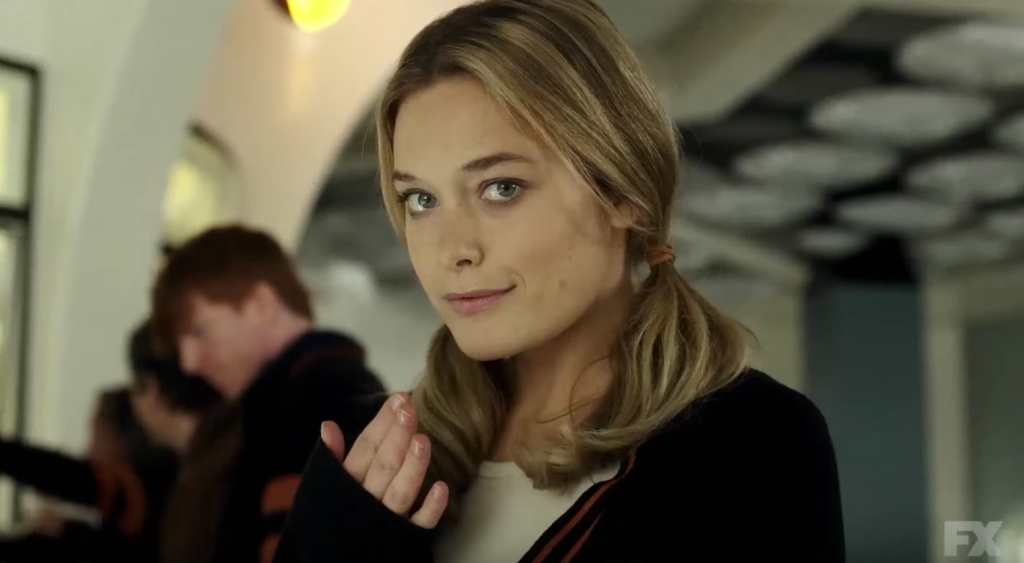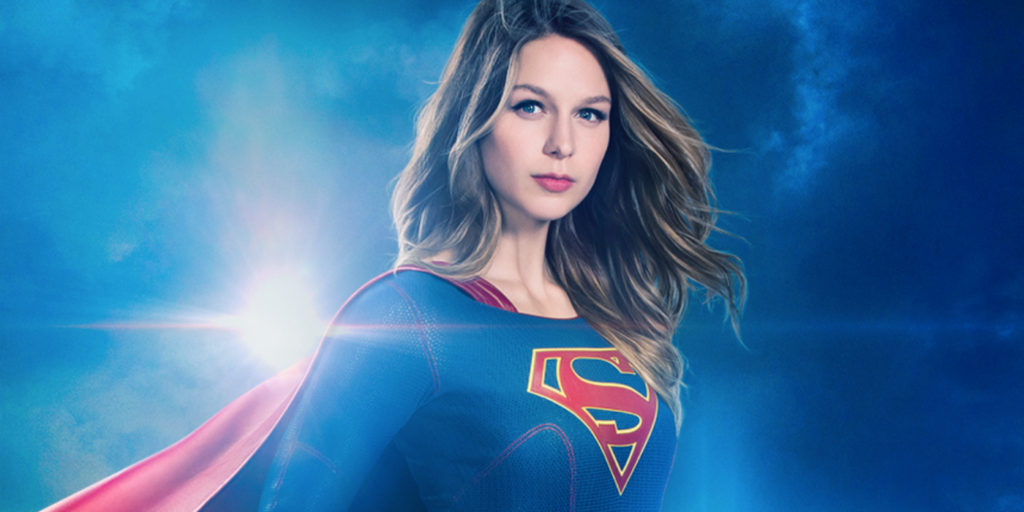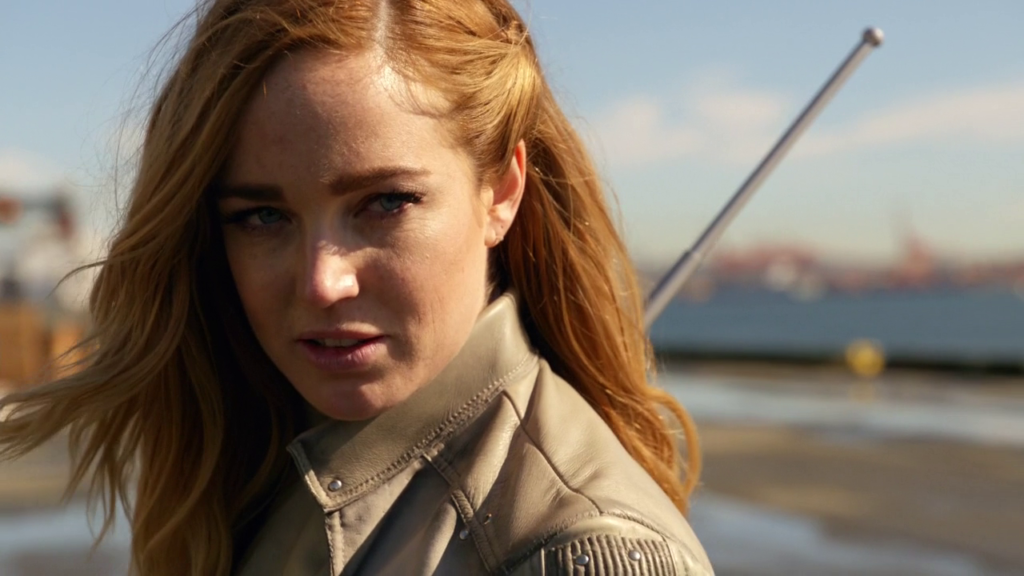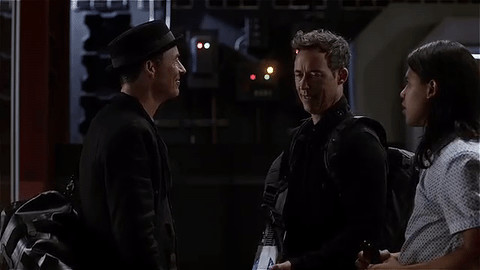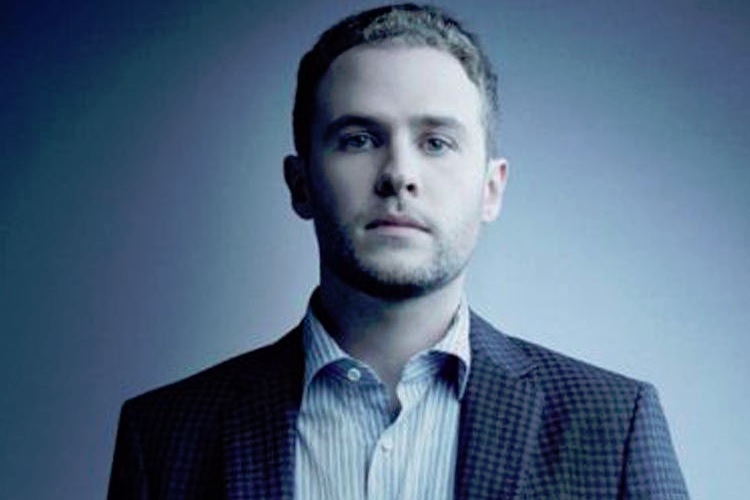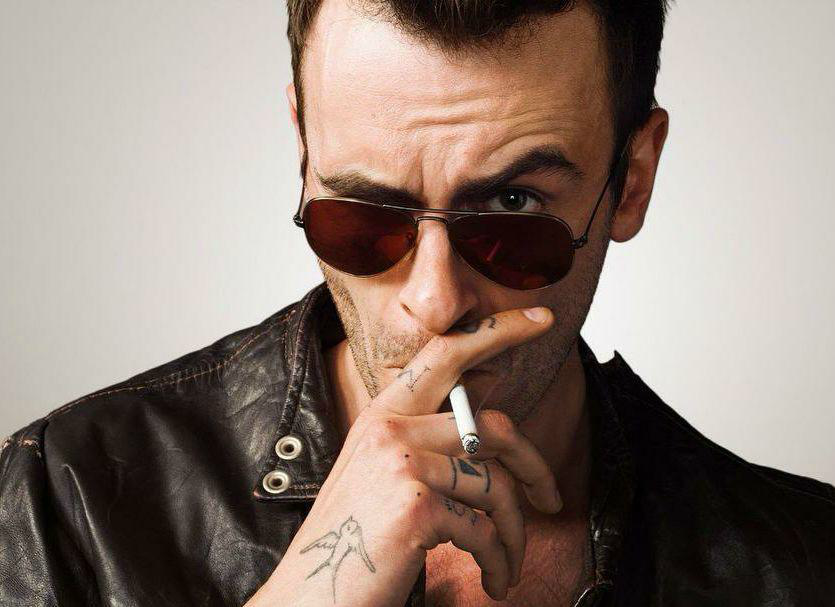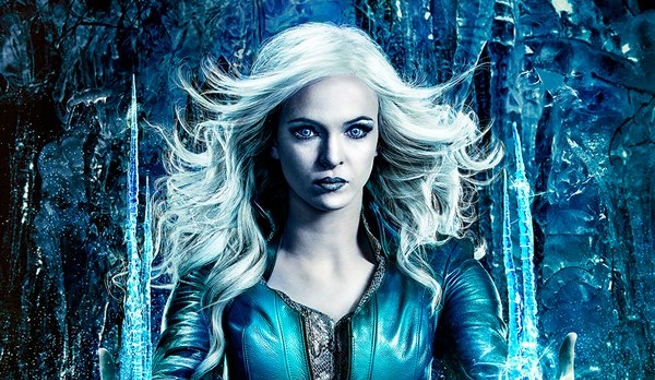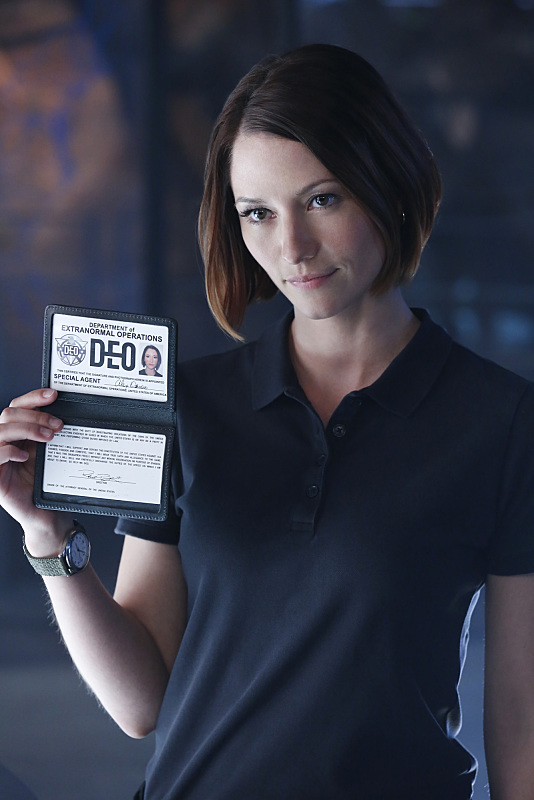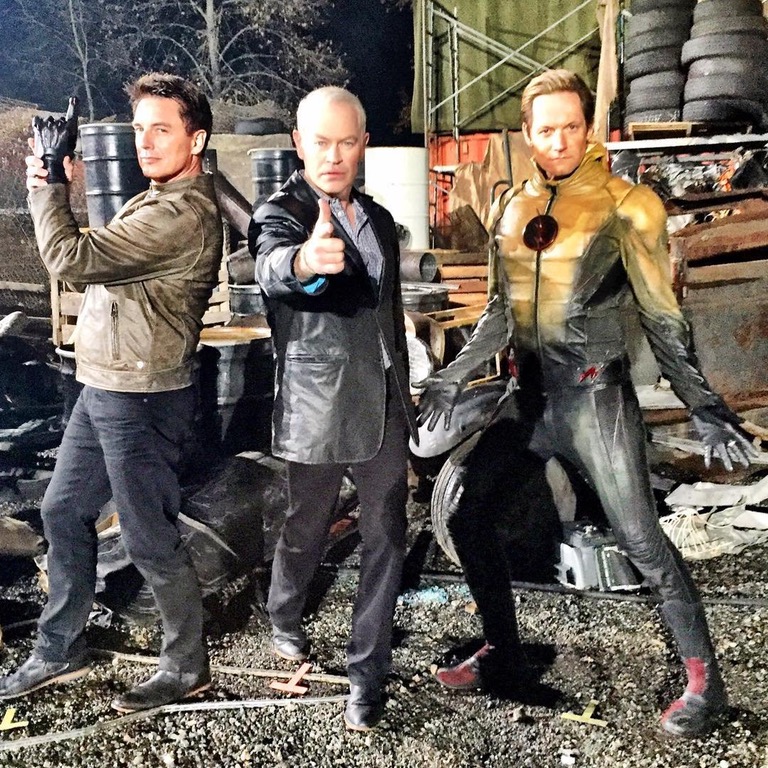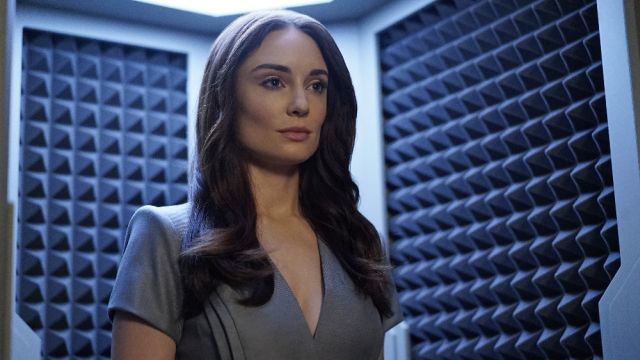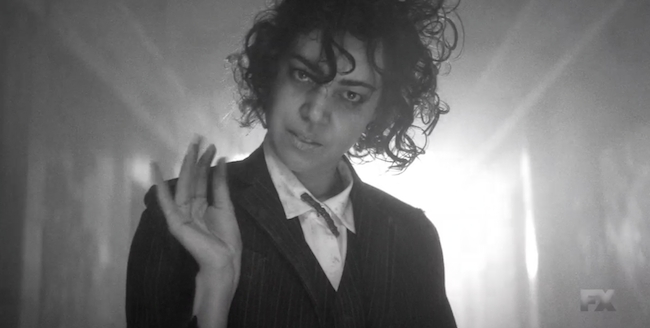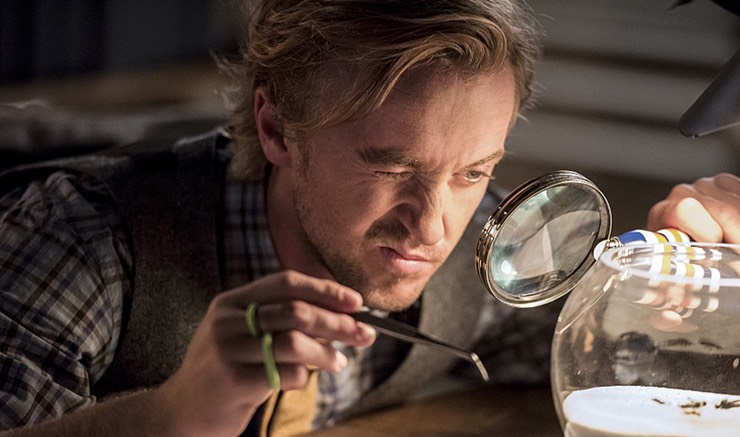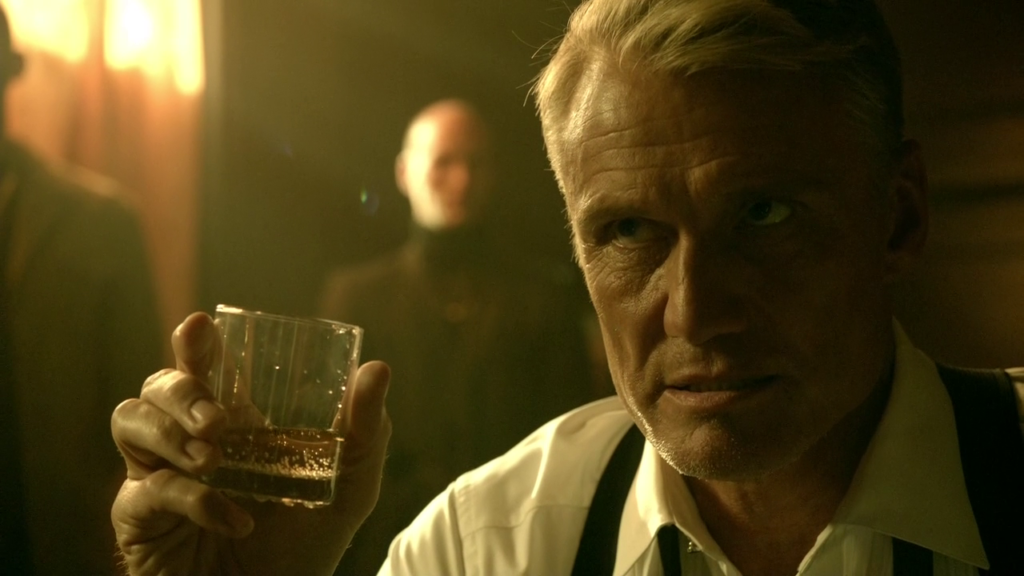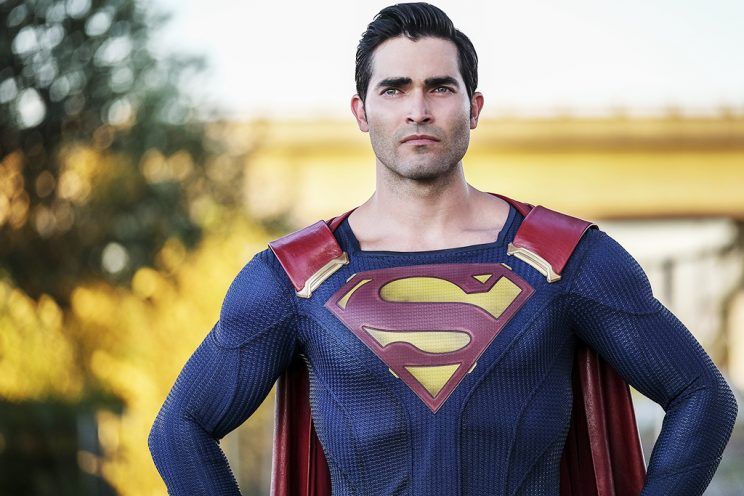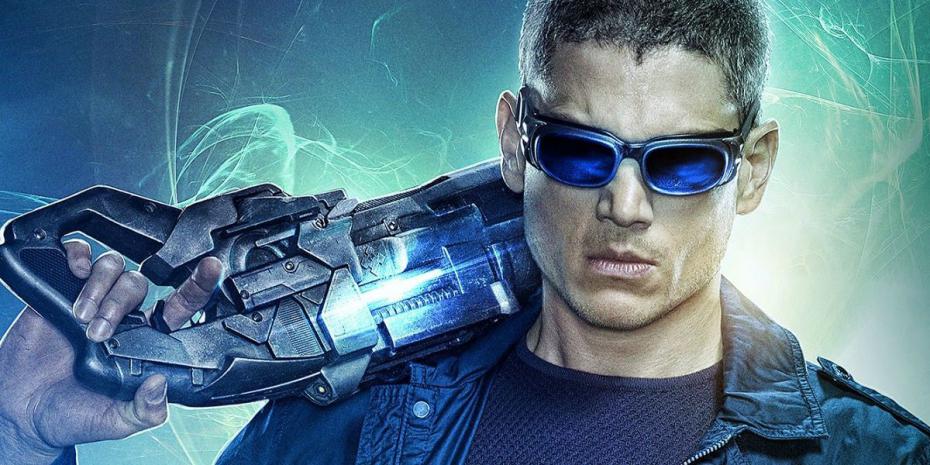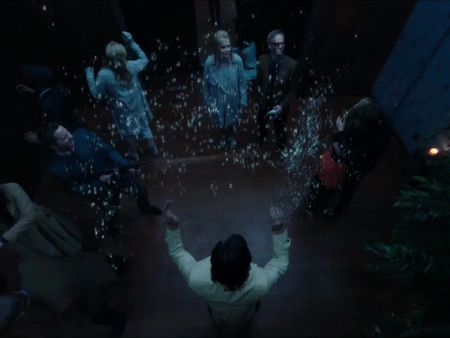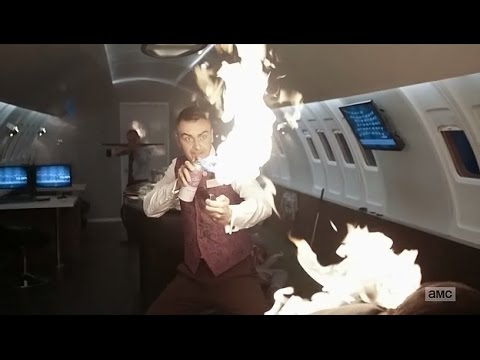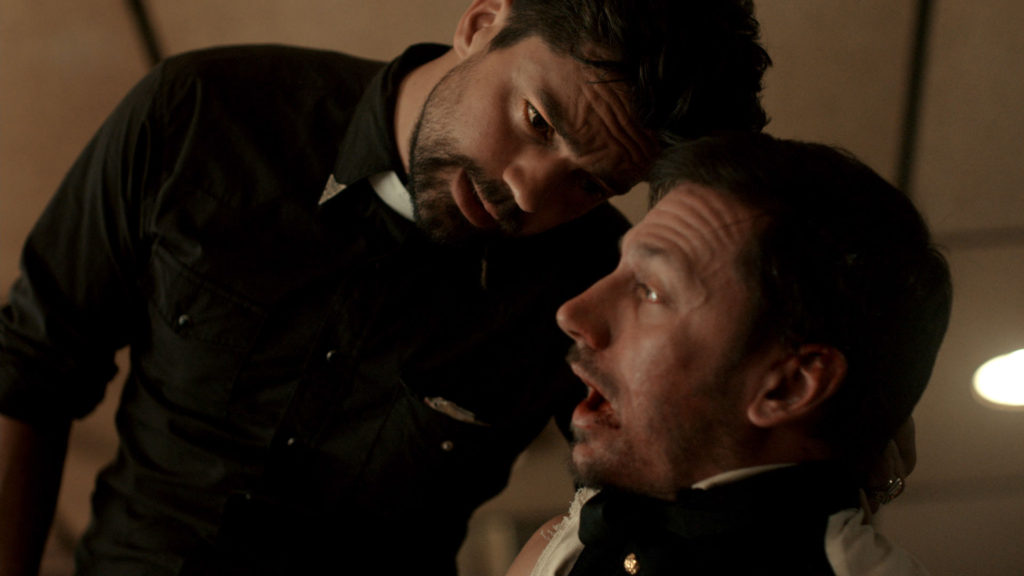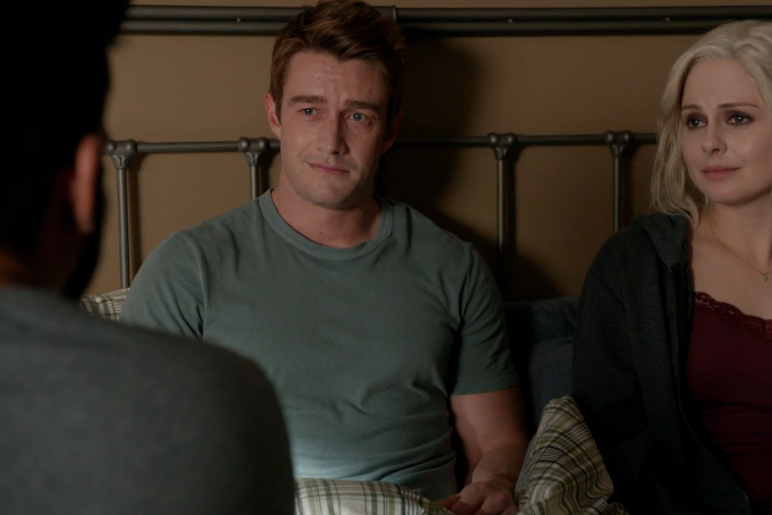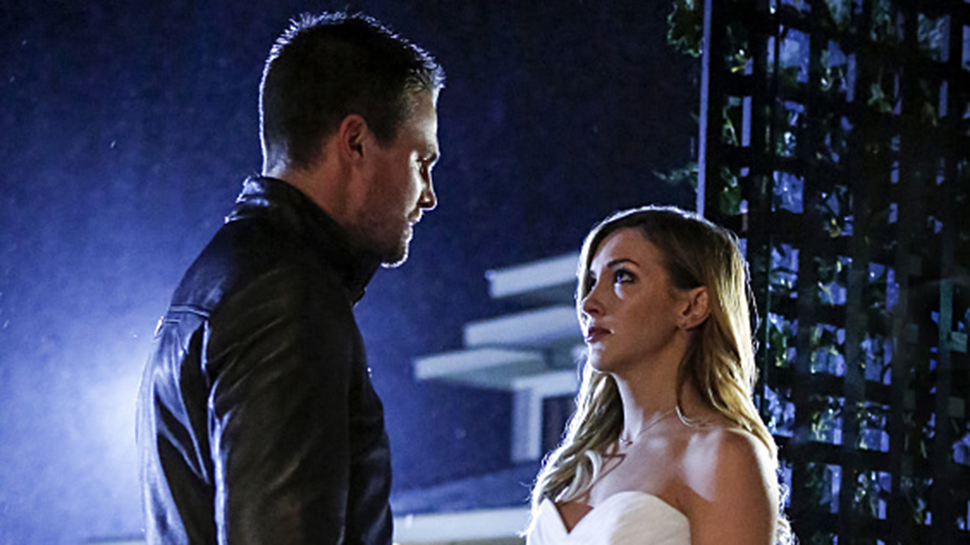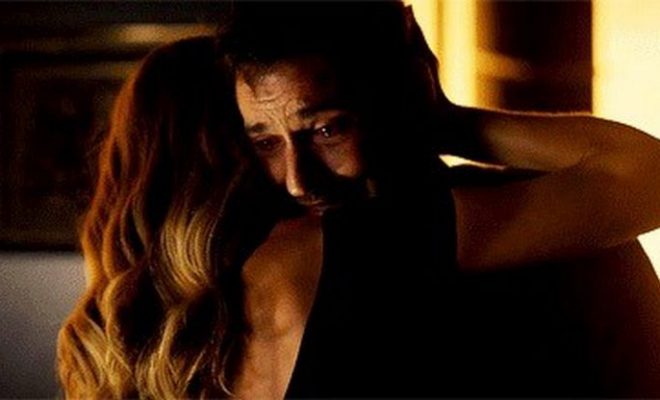Okay, let’s wrap this thing up already. Hey, I’m as eager as you are, I started writing these in March.
Ladies and gentlemen, Danny G’s Top Four Comic Book TV Series of 2017. Brace yourself for some surprising comeback stories.
4. Arrow
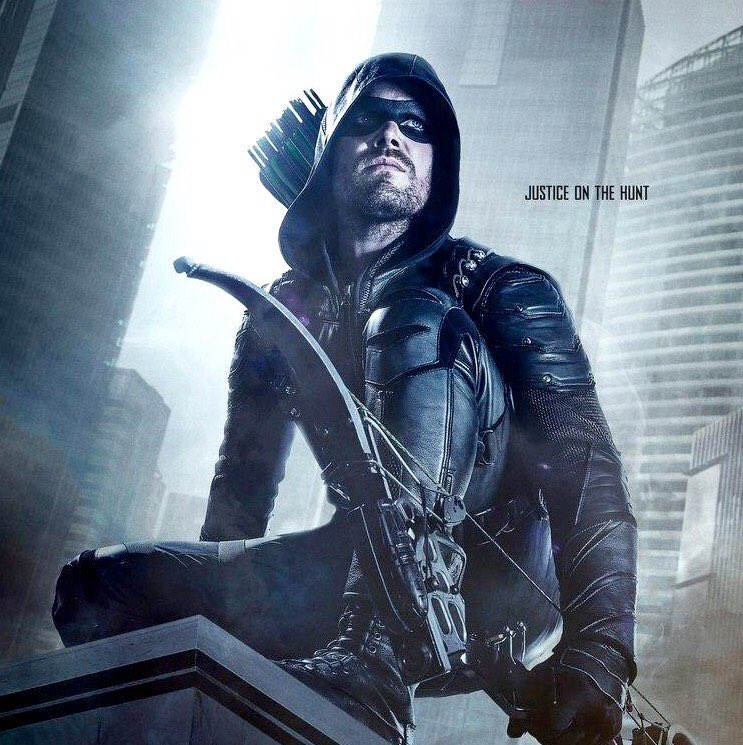
Arrow had a couple of rough seasons there. After the operatic battle of Oliver vs. Slade in season two, they floundered through the mopey Ra’s Al Ghul story of season three and pushed magic and relationship drama too hard in season four, but in season five they found their groove again in a big way.
Strengths: Stephen Amell may have given his best performance this year, and Oliver Queen has clearly evolved as a person… even if he backslid on the whole “no killing” thing.
Oliver/Felicity drama was, as requested, kept to a minimum.
After two years of decreasing relevance, the flashbacks actually felt important this year. Past-Oliver’s journey towards being season one’s “The Hood” completed, and his return to the island of Lian Yu put a perfect capstone on his “five years in Hell.”
The flashbacks also featured the return of David Nykl as Oliver’s wacky Bratva buddy from his island days, Anatoly Knyazev. He’s always fun. Shame they’re not getting along in the present.
The new team worked out well. Wild Dog took some warming up to but he got there, Ragman was great (while he lasted), Curtis became Mr. Terrific, T-spheres and all, and the new Black Canary is nicely badass.
Speaking of the new Black Canary… I thought they were going to go the Jefferson Jackson route and invent a new character, but when her name turned out to be “Dinah Drake?” That’s the Golden Age and current Black Canary’s maiden name. They introduced a new Black Canary without creating a new Black Canary. Respect.
Episodes that not only featured but were named after obscure characters Vigilante and Human Target? Nice treat for me. Not “Third season of the Human Target TV show” nice but I’ll still take it.
Tobias Church was a great warm-up villain for the new team. Casting Wire veteran Chad L. Coleman certainly helped.
Prometheus might not have made the podium, but he may well be the most chilling comic TV villain this side of Kilgrave. And they found a great way to fool us as to who he was… [spoiler title=’Spoilery spoilers’ style=’default’ collapse_link=’true’]Adrian Chase may have been an obvious answer in retrospect, but I was too busy thinking he was Vigilante. That is, after all, Vigilante’s name in the comics.[/spoiler]
Oliver forming his own Legion of Doom to face down Prometheus was pretty cool, and involved the return of Slade Wilson. That’s always worth celebrating.
Quentin and Thea made a better duo than I’d have guessed four years back.
Dolph Lundgren. Nice get, Arrow.
Weaknesses: Prometheus was so good at his job that it began to get oppressively dark at times.
…Did they just kill [REDACTED] in the finale? The actor certainly thinks so. Aw. I do not love that.
Why’d you guys write out Ragman? I liked Ragman. He was the best of the new gang. That was a dick move, you guys. I mean I’ll forgive it if Constantine helps him get his powers back next year, but until then…
Four years without a major cliffhanger and you pull that. Thanks, jerks.
High Point: “Invasion!” Now, naming the crossover episode seems as damning to the rest of the season as naming the premiere, but hear me out… “Invasion!” wasn’t just Arrow’s chapter of the big crossover, it was also their 100th episode. And in the middle of this time-travelling, space-faring battle between alien invaders and heroes from two alternate Earths, they managed a perfect, emotional, alumni-filled tribute to the previous 99 episodes. It gave Oliver just the right sense of contentment with his life for Prometheus to stroll in and destroy almost immediately after.
Low Point: “Spectre of the Gun.” Arrow tries to take on gun control, but spends so much time trying to play both sides of the issue that the best answer they come up with is “Gosh, that is a stumper.” After which Mayor Queen proposes “common sense gun laws both sides can agree on” with no, I say no elaboration as to what those might be.
MVP: Stephen Amell. He brought his A-game this year and it rooted the season.
Tips for next season: The end of this year and the end of the origin flashbacks screams “New beginning.” Let’s chase that. (Also how about that thing I said about Ragman and Constantine?)
3. Lucifer
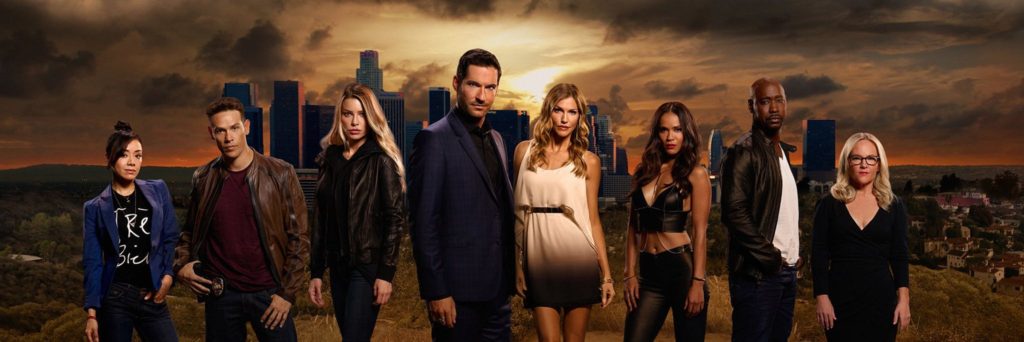
…What. How. How. How did this happen. How did Lucifer go from last season’s guilty pleasure to this season’s appointment viewing? Three words: The Goddess Charlotte. The arrival of Lucifer’s Mother brought the show’s mythology to a whole new level, making it so much more than just a crime procedural about Lucifer helping a straight-laced police detective solve murders. Although it is still that.
Strengths: Nearly every member of the cast was given better material this year. Dan went from “Detective Douche” to a more relatable, likable, rounded out character; Amenadiel went from stubbornly trying to drag his brother back to his post in Hell to struggling with a loss of faith in his Father in the face of his Mother’s arrival; Maze began to define herself outside of “Lucifer’s flunky;” Dr. Linda became the first of the human characters to realize Lucifer isn’t just pretending to be the ex-King of Hell, and had to wrap her head around having clients/friends that include angels, a demon, and the co-creator of the universe; Aimee Garcia is a delightful addition as the perpetually upbeat CSI Ella Lopez; even Trixie, Chloe and Dan’s daughter, was a more fun character this year. And Lucifer himself got a lot more to play with, as his family dynamics expanded beyond “I hate my Dad” and “Screw you, Amenadiel.” Basically, nearly every part of this show was working on a whole new level.
Nearly.
Weaknesses: Two problems.
First, while the new mythology is unquestionably a value add, it did sometimes mean that the murders-of-the-week didn’t get the attention they needed. And given that they took up a chunk of the screen time and were the focus of at least three characters each week, that’s not ideal.
Second… Detective Chloe Decker, in theory the second of two leads, was stuck in a difficult place this year, narratively speaking. While they did give actress Lauren German some fun or meaty material to play with, she was kept at arms’ length from the central plotline, and for an awkward reason. At the mid-season break, Charlotte learns a major secret about Chloe, one she herself doesn’t know and isn’t in a position to understand. So it’s Clara Oswald’s Impossible Girl story all over again… the story is about Chloe, but Chloe herself can’t participate in it, which ultimately weakens her as a character.
High point: “Weaponizer/Monster.” Lucifer and Amenadiel’s little brother Uriel comes to town, on a mission to bring down their Mother. For Lucifer the show and Lucifer the character, everything hits a new level from here.
Low point: …Honestly hard to think of one. My first guess would be “Lady Parts,” for Lucifer’s weirdly newfound obsession with distraction as a lifestyle, but no episode with such a memorable “girl’s night,” drunk Amenadiel joining undercover work with Lucifer and Dan, or less-drunk Amenadiel sulkily defending his choice in drinks (“But cosmos are yummy,”) could be a low point. And hedonistic, carefree Lucifer needed a last ride before Uriel’s arrival. Hmmm… I guess “Homewrecker,” maybe? I mean I don’t remember disliking it but it seems largely forgettable compared to the others.
MVP: Totes Tom Ellis. He was already the best part of this show last season, but he reached new levels this year.
2. Legends of Tomorrow
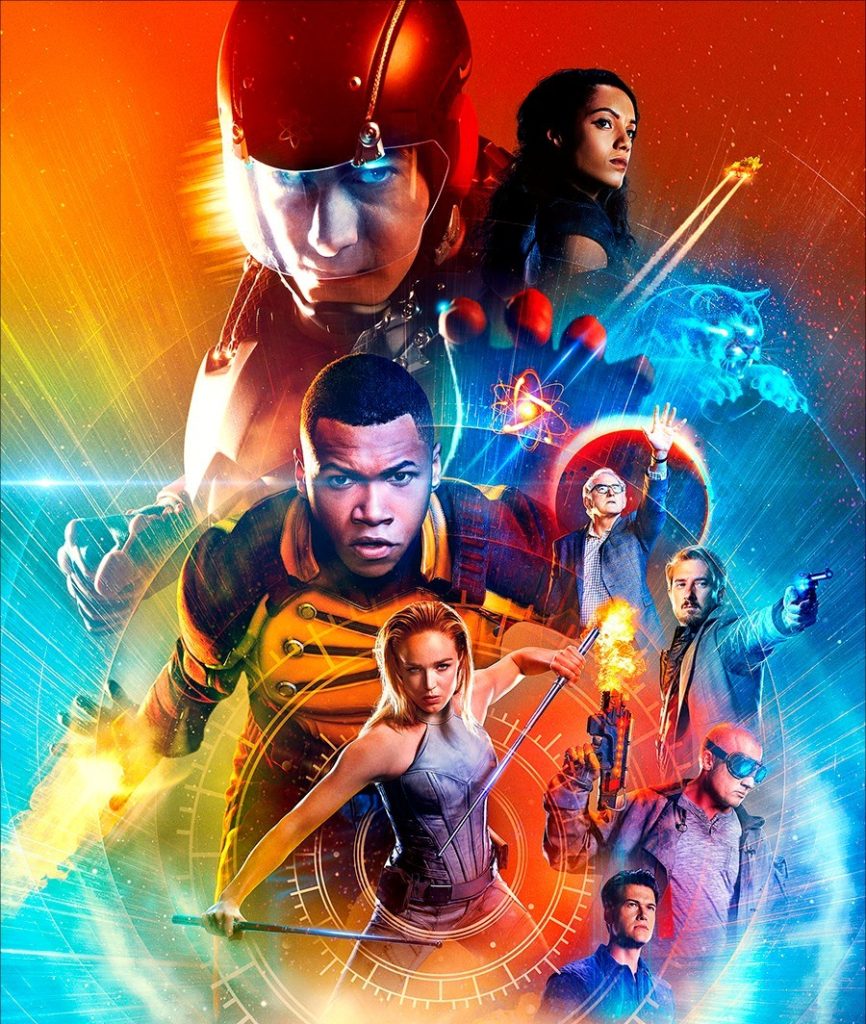
Does the Berlanti Cape-based Action Fun Factory only have so much fun to go around? Because while The Flash lost a step this year, Legends of Tomorrow found it. They went from the Joey Bishop of the DCW Rat Pack to the Frank Sinatra. They– was that enough metaphors? Too many?
Cutting loose the boat anchor (never enough metaphors) that was the Vandal/Hawkgirl plot certainly helped. Freed of their weakest characters (and, sadly, two of their best for parts of the year), Legends season two took on a more classic story structure: a race to collect the various parts of the magical MacGuffin before the bad guys get it and do something bad with it. It’s a classic for a reason, and it allows for more give and take, successes and failures, making for a more dynamic arc than last year’s “The Gang Continues to Fail at Killing Vandal Savage,” or indeed “Will Flash beat Savitar this week? LOL, no, it’s only April.”
Plus they made better use of time travel as a central plotline, meaning more fun time travel adventures and less brooding around the Waverider about how they haven’t made any progress. Legends of Tomorrow became the most fun and most clever show in the DCW-verse’s line-up.
Strengths: The Legion of Doom. A great showcase for three of their best villains. John Barrowman and Neal McDonough brought just the right amount of evil camp, and played well off of Matt Letscher’s Eobard Thawne. And they all had concrete and clear motives, unlike some of the year’s villains.
The Legends themselves were pretty great this season. Amaya/Vixen was a far better character than the departed Hawkgirl. Just far better. Nick Zano’s Nate Heywood strutted into the cast like Dwayne Johnson in Fast Five: the missing ingredient we didn’t even know we needed. The nerd-fun of the show got cranked way up as historian Nate and scientist Ray Palmer geeked out over time travel and movies together. Ray stopped finding new ways to screw up every week, bringing an end to the Ray Palmer Screw-up Counter. A more sedate Mick Rory/Heat Wave became a more interesting character. Arthur Darville got to flex a little more this year. And Amy Pemberton, after over a season and a half as the voice of the Waverider’s computer Gideon, actually got to be on screen. And it worked out to be delightful.
More, better, and better used time periods.
The finale found a fun and interesting way to raise the stakes and make the Legion as dangerous as they deserved to be.
Weaknesses: Thanks to Arthur Darville filming the third season of Broadchurch back in England, Rip Hunter went missing for sevenish episodes. That’s a lot of episodes without one of my absolute favourite characters. And with Captain Cold not back full-time from season one, that was two absolute favourite characters gone. That only left me, like, three absolute favourite characters! Four with Damien, I guess…
I guess there’s no keeping love and romance drama off the Waverider, huh. Well, it was better this year, at least.
They rushed “Doomworld.” Rushed it and didn’t commit to it.
Can’t say I’m super happy with how they used Rex Tyler and the Justice Society. Or more to the point, how they didn’t.
High point: Either “Raiders of the Lost Art,” in which Rip returns, stopping the Legion means convincing a young George Lucas to stay in film school, and the action beats get Star Wars-y… or “Fellowship of the Spear,” in which Captain Cold returns, stopping the Legion requires help from a young J.R.R. Tolkien, and the plot becomes Lord of the Rings-y. Sure, the bit wasn’t subtle either time, but it was charming enough to work.
Low point: “Shogun,” which is best summed up by the “It’s Always Sunny In Philadelphia” meme Reddit gave it…
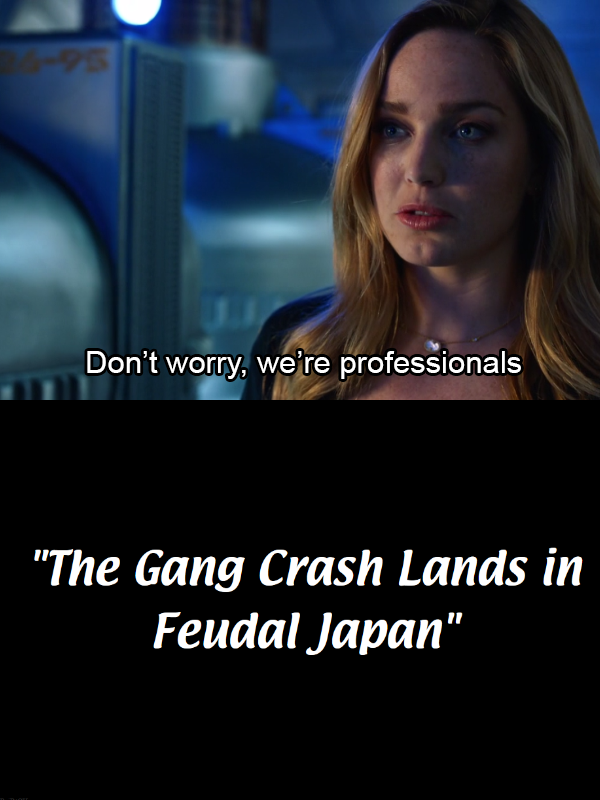
No one was their best self that week.
MVP: A tough call with Victor Garber and Brandon Routh in the cast, but it’s Caity Lotz as Sara Lance. Taking over as captain in Rip’s absence, she became a great leader, and worth hanging the finale on. Also, with the man who killed her sister in the Legion, she had the highest stakes without going full “Vandal kills my family.”
Tips for next season: More like that, please. And stop writing out Rip Hunter he has to be on this show forever I can’t take any more time travel shows writing out Arthur Darville.
1. Legion
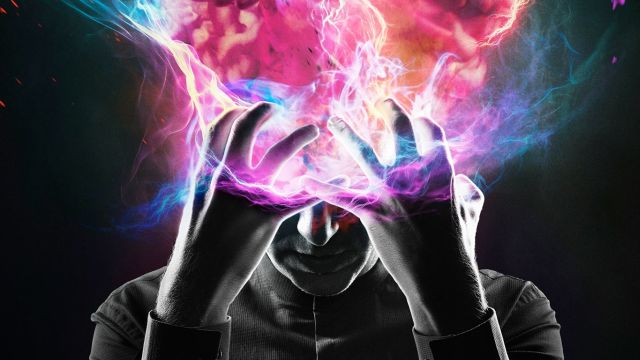
…Where the Hell did this show come from?
[checks IMDB] Oh. The creator of the Fargo TV show. Gotcha.
The thing about Fox’s X-Men cinematic universe is that they do not super care about how all of their properties link together. While this could prove frustrating to anyone trying to figure out how the timeline of the X-Men films works (spoiler: it doesn’t), it means that creators are free to pitch something like Logan, which doesn’t fit neatly with the rest of the franchise, but also doesn’t care. They’re just doing their own thing and trying to do it well. Marvel Studios is selling themselves on “Everything is connected, trust us,” so it sticks out when something obviously doesn’t fit (looking at you, Defenders). X-Men? Their projects have an atmosphere of “Don’t worry about it, just relax and enjoy.”
And thus did Noah Hawley sell the FX network on an X-Men show that features several mutants, but never explicitly admits the existence of the X-Men*. And thanks to the loosey-goosey nature of the X-Men franchise, its self-contained nature doesn’t irritate the viewer like, say, Claire Temple deciding to fly to China to fight ninjas rather than call Daredevil. In fact, the whole show works like gangbusters.
*They hint at Professor Xavier kinda strongly toward the end, though.
Strengths: Legion is more visually daring and inventive than any show on TV, superhero or otherwise, this side of American Gods. (And there is no shame in coming in second to American Gods.)
The costumes, the sets, the angles, every single aesthetic choice is a little fascinating.
Jemaine Clements of Flight of the Concords turns up around the half-way point, and pushes the show to a whole new level of surreally cool.
I mentioned the thing about Aubrey Plaza killing it on this show as Lenny, right? Well it bears repeating. She’s the highlight of a cast that’s already above average across the board.
At a tight eight episodes, it’s all thriller, no filler. Marvel Netflix could learn a thing or two about Legion’s pacing.
You don’t need to have seen a single X-Men movie or have read a single comic to follow the story.
David and Syd, the slightly star-crossed lovers who can only touch each other in the astral plane, are competitive with Alex Danvers and Maggie Sawyer as my favourite couple in comic TV.
The supporting cast is really solid too. Maybe they didn’t make the “supporting cast” podium, but there’s not really a weak link.
Not many TV shows could write a soundtrack better than what Blake Neely does for the DCW shows… but Jeff Russo pulls it off.
I’m personally fascinated by how timeless the show makes itself. The characters have a modern feel, but the costumes and sets are out of the 60s/70s, and they’re packing 30s-style tommy guns. It really frees the more continuity-obsessed mind from trying to place it in X-Men continuity when you can’t even be sure what decade it takes place in.
The eeriest rendition of “Rainbow Connection” you’ve ever heard.
At the very end, they managed something with the sinister mutant-hunting Division Three that Supergirl and Agents of SHIELD couldn’t with Cadmus or the Watchdogs: they gave the group based around hunting a minority (mutants, in this case) depth and levels. They dared us to sympathize with someone they’d set us up to hate.
Weaknesses: The season finale could have contained more closure. But hey, at least we already know season two is on the way. Eventually.
High Point: I wanted to say Chapter Four, which opens with Jemaine Clements talking directly to the audience about the two types of stories we tell children, but then Chapter Seven blew the doors off the place. The chalkboard, David’s “rational self,” Bolero… it’s hard to think of a scene from this episode that wouldn’t have been the single best scene from any other show.
Low Point: The worst thing I can say about any episode is that Chapter Six, from a narrative viewpoint, isn’t really my bag. But without it, you couldn’t do Chapter Seven the way they did. [spoiler title=’Don’t peek if you haven’t watched it’ style=’default’ collapse_link=’true’]Of the three shows that did “Heroes wake up in an artificial reality created by the villain,” Legion did it best. Legends of Tomorrow rushed it and under-sold the Doomworld dystopia, whereas Agents of SHIELD spent nearly their entire third act in the Framework. SHIELD was too hot, Legends too cold, Legion was juuuust right.[/spoiler] And it gave us this scene, which (trust me) does make perfect sense in context. I’m really not selling this as a “low point,” am I…
MVP: Dana Gonzales and Craig Wrobleski, the cinematographers. The visuals alone would have pushed this show into the top five. Best shot show I’m watching.
Tips for next season: Look… you don’t need to do it, but Patrick Stewart has apparently said he’ll reprise Charles Xavier one last time to be on this show, and I simply do not see how it could possibly hurt. Or get James McAvoy. Or have meeting Stewart-Xavier trigger a psychically implanted memory of McAvoy-Xavier. You never need to say “X-Men,” and we certainly do not, Lord but we do not need Wolverine to show up, but maybe just this one thing?
And that’s the end. The highlights of the best 13 of 15 comic book shows. Well, the best 12 and Iron Fist. Was it only two years ago that I only ranked seven shows? Man. Well, at least next season this process won’t get even more comp–
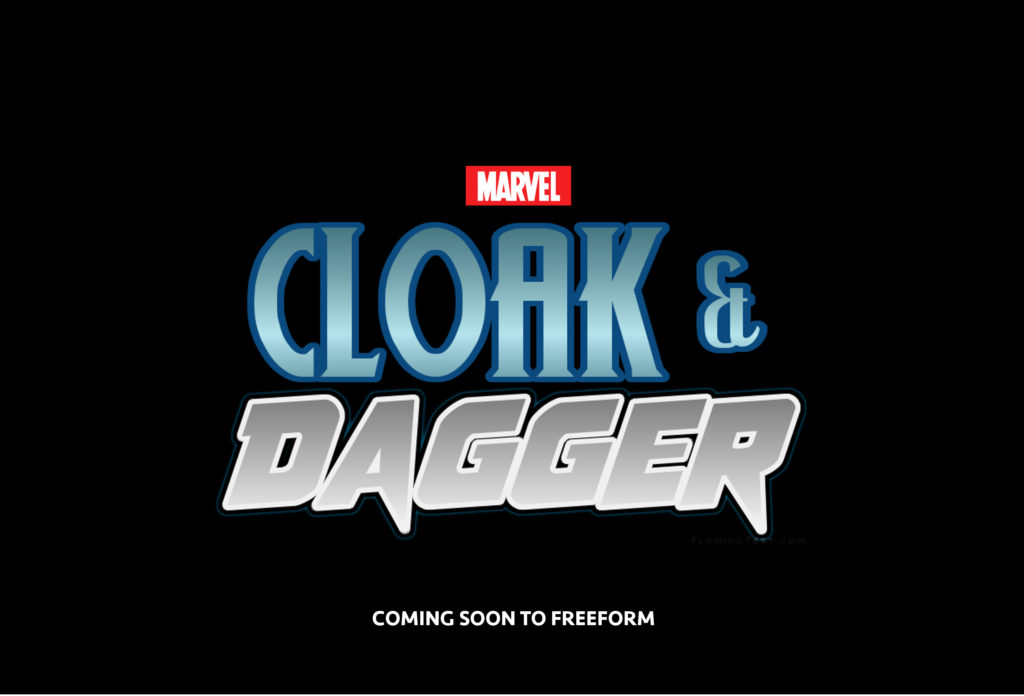
…Oh no.

SON…
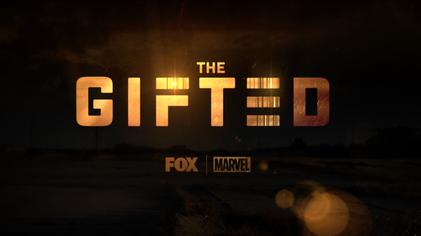
…OF…
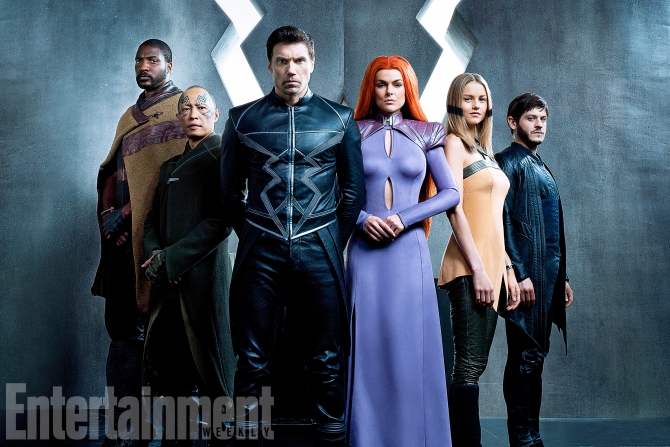
…A…
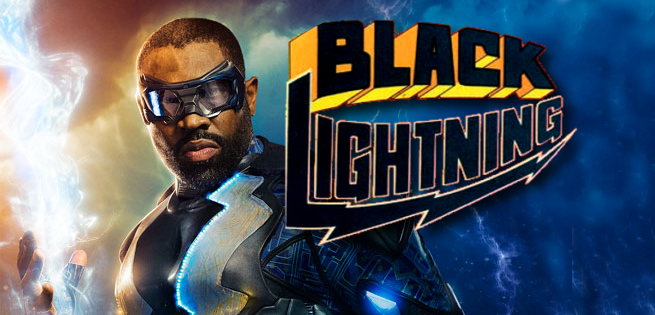
…BITCH.
*Sigh.*
Okay. Meet back here next summer. Until then, Other Things.

